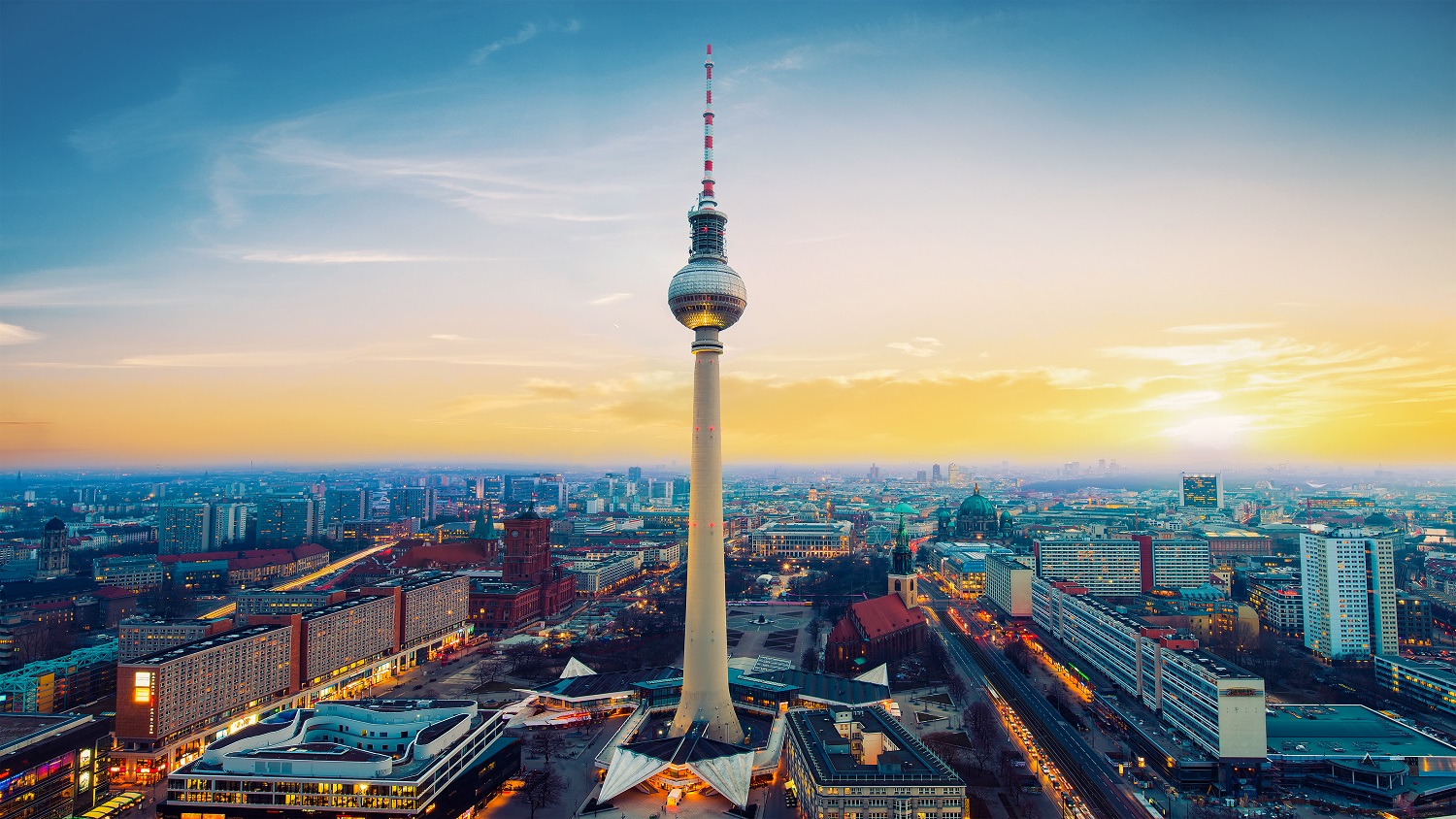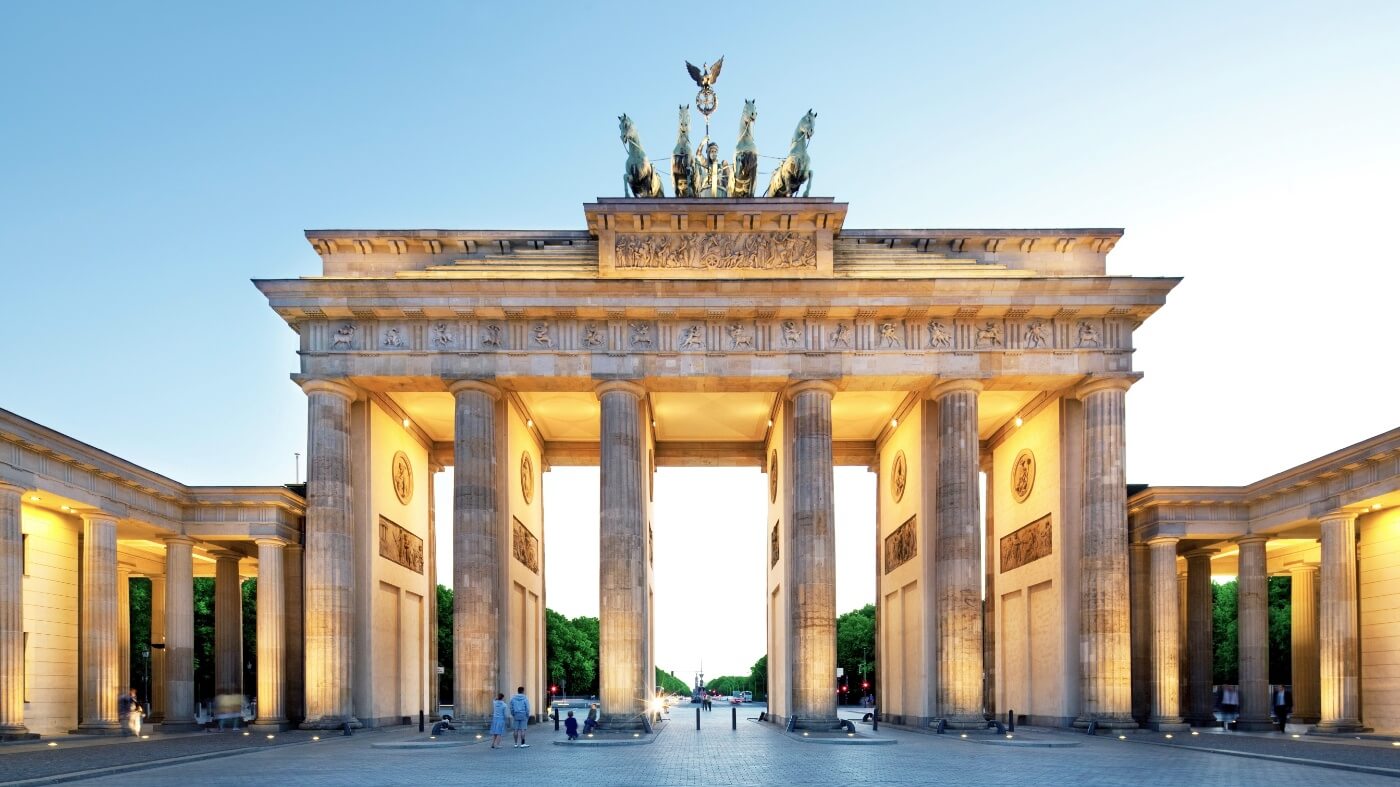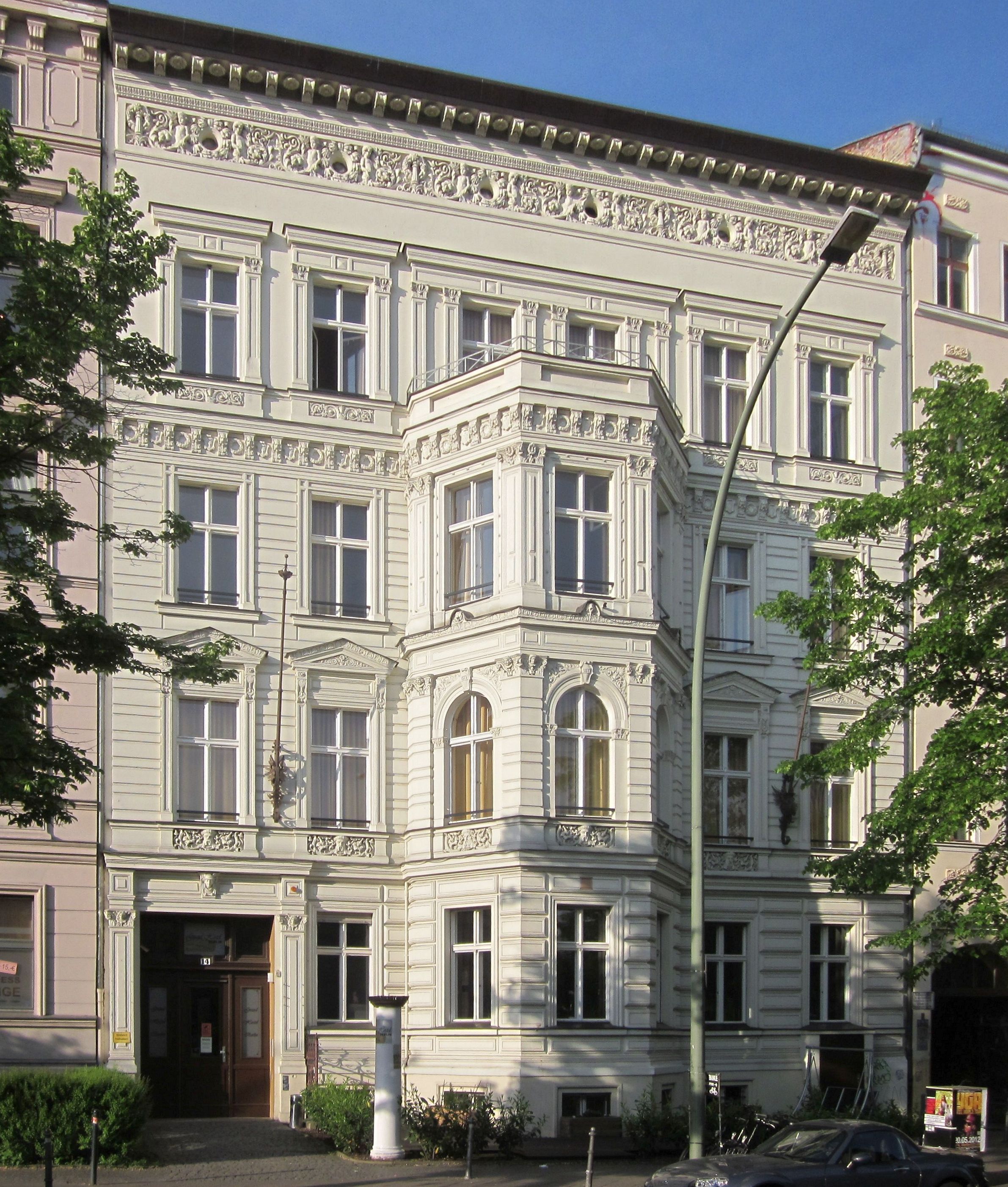
|
UNB Travel Study BerlinBerlin, GermanyExplore the city that never sleepsA world city with edgy allure and a cultural hot spot, Berlin provides participants with exceptional opportunities for insightful learning. Participants will spend 3 weeks seeing the icons of Berlin’s historical legacy, its contemporary urban landscape, thriving cultural and artistic scene and sites of political and economic significance. They will experience living history and memory culture, Berlin’s multiculturalism and social change, all while exploring neighbourhoods and communities, museums and galleries. Berlin offers a multitude of cultural and educational possibilities and is our departure point for day-trips to nearby Potsdam, Dresden (or Weimar) and to the natural treasure of the Spree forest. Three courses, CCS 3025 Berlin Now, Building the modern city and HIST 3053 Berlin, From Empire to Republic, and ECON 2203 Introduction to Economic Governance / ECON 3705 Canada and the New Global Economy offer multiple perspectives on this vibrant city. We will visit all the famous landmarks of Berlin: The Brandenburg Gate, the Parliament building, the East Side gallery (Berlin Wall remnant), the television tower, and also venture off the beaten path. We will view the government district and the museum island from a relaxing boat tour on the Spree river, and mingle with Berliners at food markets and during cultural outings. One highlight is the Friedrichstadtpalast, a renowned entertainment venue where we will take in a variety show. Berlin’s culinary choices, ranging from ethnic restaurants to bakeries and street food, offer many opportunities for discovery. There will be plenty of free time for participants to explore the city and its many cultural offerings on their own. APPLY NOW!
|
| Website URL: | //www.unb.ca/travelstudy |
| Accommodations: |
Participants and faculty will stay at the Grand Hostel Classic, Tempelhofer Ufer 14, Berlin Kreuzberg (http://www.grandhostel-berlin.de). The Hostel is located in a lively multicultural neighbourhood, very close to transportation and walking distance to several sites we will visit during the program. There are 4 (5, or 6)-bed dorm-style rooms. Single and double rooms are limited but can be requested with a surcharge. (Please contact Dr. Anette Guse (aguseatunb.ca) if you are interested in this option. You will be provided with accommodation from the night of May 5 until the morning of May 24, 2019.
Meals: A breakfast buffet is provided every day. Twice a week, we will come together for a banquet at one of Berlin's restaurants. Aside from that, students will be responsible for their own meals. The Hostel has an adjoining bistro, which offers simple hot meals (salads, burgers, pasta). University cafeterias as well as public cafeterias in department stores etc. offer reasonably-priced meals. Grocery stores, cafés, bakeries and delis are other inexpensive options. |
| External Funding Available: | Yes |
| Availability: | 20 |
| Academic Dates: |
The program will take place May 4 - 24, 2019 Expected Departure Date from Fredericton : Saturday May 4, 2019 Expected Arrival Date in Berlin, Tegel: Sunday May 5, 2019 Expected Departure Date from Berlin, Tegel: Friday May 24, 2019 |
| Course Timetable: |
Participants select two courses from two different sections (A, B, or C). A) CCS 3025 Berlin Now, Building the modern city B) HIST 3053 Berlin, From Empire to Republic C) ECON 2203 Introduction to Economic Governance or ECON 3705 Canada and the New Global Economy* *Student participants in ECON 2203 and ECON 3705 will participate in all of the same tours and lectures given by Dr. Passaris. The principal difference between ECON 2203 and ECON 3705 is in the formal course requirements. In addition, the final exam for those two courses will be different. Course meetings will be held mornings, afternoons, and in the early evening, in three hour blocks, five days a week, in a rotating system to prevent overlaps. This will allow students to take various course combinations. Courses Note: Participants not requiring university credits are welcome to audit these courses (total cost is the same). CCS 3025 Berlin Now: Building the Modern City – Anette Guse This course aims to explore the Berlin's multi-facetted identity as a city, once divided by a wall, now renowned as a cultural capital with eclectic energy. Using the city as a workshop, we will examine Berlin's architecture during Imperial Germany, learn about film history and modern art during Weimar Republic, and engage with contemporary art and street art. We will follow traces of the Nazi and Cold War periods on the urban landscape and conclude with consideration of post-modern architecture. Investigating how the tension between the past and the present materializes, we will approach concepts such as memory culture and critical reconstruction. Students will understand and appreciate the roles of architecture and art, multi-cultural communities, including a reviving Jewish community, and both public and counter-culture in building modern Berlin. HIST 3053 Berlin: From Empire to Republic – Julia Torrie This course examines Modern German history through the city of Berlin. In visits to key historical sites, we will uncover the royal history of the Imperial period, talk about soldiers and civilians in the two world wars, explore cultural innovations in the Weimar Republic, and examine the crimes of National Socialism. We will use the city landscape to learn about communism and capitalism during the Cold War, the rise and fall of the Berlin Wall, and the challenges and opportunities of the European Union in the twenty-first century. ECON 2203 Introduction to Economic Governance – Constantine Passaris This is an introductory course in economics. It does not require any prerequisites or any previous knowledge of economics. This course is designed to introduce students to the concepts, tools, programs and policies of government involvement in the economy. The role of government and the scope and substance of public policy in the new economy of the 21st century will be examined. We will also examine the role of government in the context of the global financial crisis of 2008. Contemporary examples from Canada’s and Germany’s economic governance landscape will be used to illustrate the course content. Unique and exceptional visits of an economic and political context are planned during our stay in Berlin. ECON 3705 Canada and the New Global Economy – Constantine Passaris This course will examine the economies of Canada and Germany in the context of the new global economy with special reference to globalization, trade liberalization and the information technology and communications revolution. We will discuss the economic challenges and opportunities as well as political implications for Canada with respect to political agreements, trade and the demographic deficit. In particular the potential for enhanced political liaisons and Canadian exports to Germany and the European Union and contrast the population and immigration policies in Canada and Germany. Students will have the opportunity to visit institutions of economic, political and financial significance as well as accessing local government resources by way of experiencing a full immersion in the German economy. Instructors:Dr. Anette Guse is a member of the Department of Culture and Media Studies at the University of New Brunswick in Fredericton, where she specializes in German Studies and German as a Foreign Language. She has degrees from the University of Heidelberg, Waterloo and a doctorate from Queen’s University. Her research focuses on German Cinema, Performance Studies (Opera, Dance and Music Theatre), and Brecht and Weill. She also has an interest in Urban Studies. She has directed the New York TSP in 2009, and taught a course on Art and Architecture (WLCS 3022 New York Modern). She is the Director of the Berlin Travel Study Program for the third time (2014, 2016, 2019) A native speaker, she is enthusiastic to introduce participants to Berlin. Dr. Constantine Passaris is Professor of Economics at the University of New Brunswick. He was designated as a popular professor by Macleans’s magazine and has received the Dr. Allan P. Stewart award for excellence in teaching. He has written extensively on Canadian and European economic issues, immigration, multiculturalism and public policy. He is an ardent promoter of an international learning experience for his students. He has taught overseas as a Visiting Professor at three universities, was one of the instructors during the Berlin 2017 travel study program and is the co-founder of the UNB France travel study program and participated in that program for five years. Dr. Julie Torrie is a Professor of European History at St. Thomas University. Berlin is one of her favourite cities, and she has lived there, and in other parts of Germany, for extended periods of time. She speaks German fluently, and obtained a Ph.D. in History from Harvard University in 2002. She teaches courses in modern European, German, comparative and world history, and has published on civilian evacuations in Germany and France during the Second World War, soldiers’ photography, wartime tourism and the history of food. Her second book, German Soldiers and the Occupation of France, 1940-44, appeared in September 2018. A member of the instructor team for the 2014 Berlin Travel Study program, she is excited to introduce the city to a new group of travellers in 2019. |
| Program Type: | Travel-Study |
| Language: | English |
| Available Subjects: | economics , history |
| Travel Information: |
Travel arrangements are the responsibility of the individual participants. Do not purchase your plane tickets until you are advised in writing by the UNB Travel Study program that the program has reached a sufficient amount of participants to run. Travel Documentation You are required to have a valid passport to complete the registration process for a travel study program. A photocopy of your passport is required 45 days prior to the commencement of your program. Your passport must be valid for at least 6 months beyond the date you expect to return to Canada. For more information regarding passports please visit Passport Canada. Students are encouraged to apply for a passport as soon as possible to avoid any delays. |
| Practical Information: |
Program Fees Include: Program Fees DO NOT Include • Travel to and from the destination, airfare insurance Financial Assistance UNB applicants may apply for Travel Study Awards for Berlin, which are valued at $2000 a piece. Bursary Funds will be available, which can be applied for through the Financial Aid Offices on the Fredericton and Saint John Campuses.
|
| Visa Requirements: |
If you are not a Canadian citizen, you are responsible to check with the German consulate to inquire about visa requirements. Canadian citizens do not require a visa for a visit to Germany of less than 90 days You are required to have a valid passport to complete the registration process for a travel study program. A photocopy of your passport is required 45 days prior to the commencement of your program. Your passport must be valid for at least 6 months beyond the date you expect to return to Canada. For more information regarding passports please visit Passport Canada.Students are encouraged to apply for a passport as soon as possible to avoid any delays. Canadian citizens do not require a visa for a visit to Germany of less than 90 days |
| Summer School Information: | Cultural Studies, History, & Economics |
| YouTube Channel: | https://travel.gc.ca/destinations/germany |
Testimonial |
|
Testimonial |
|
Testimonial |
|

